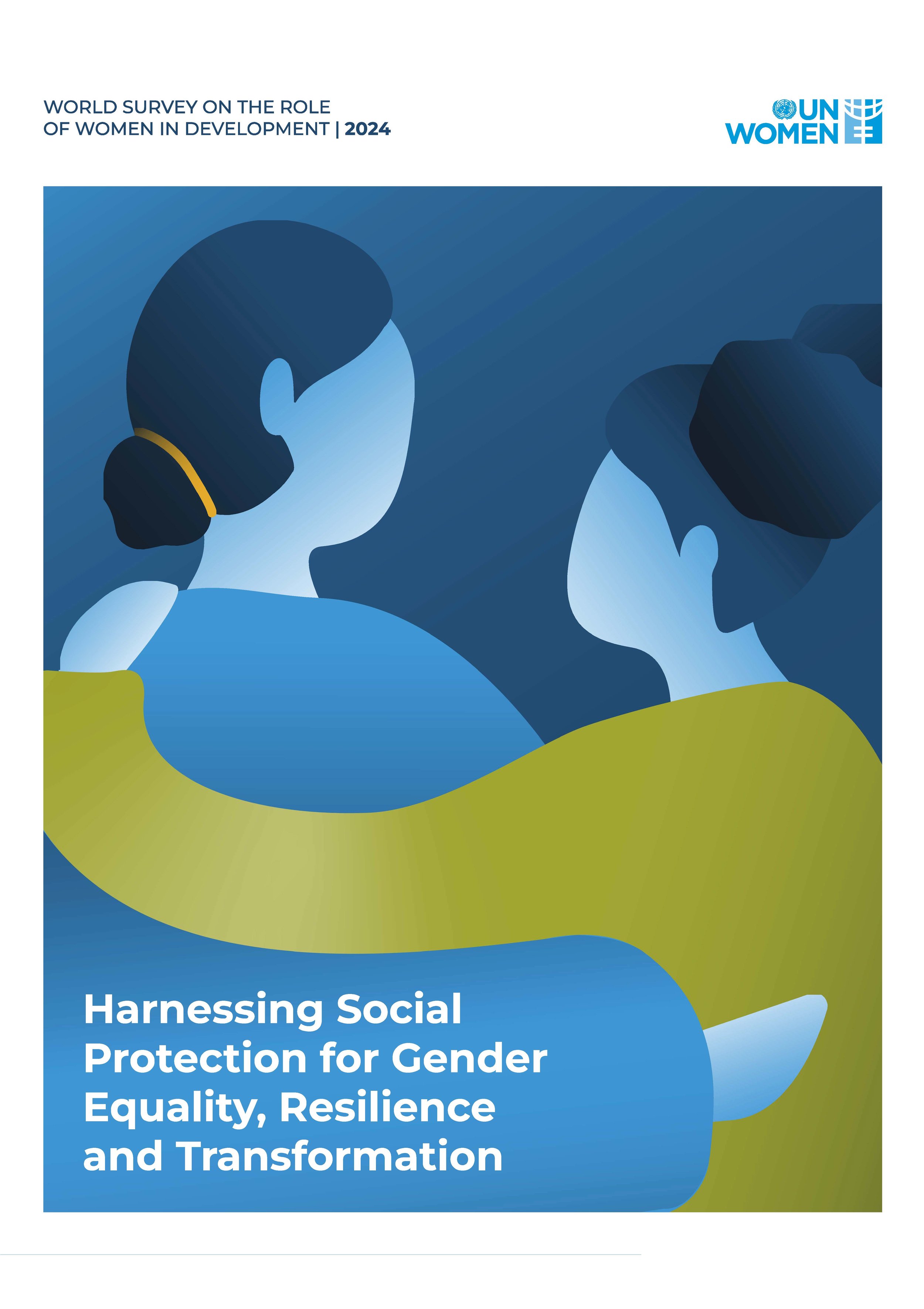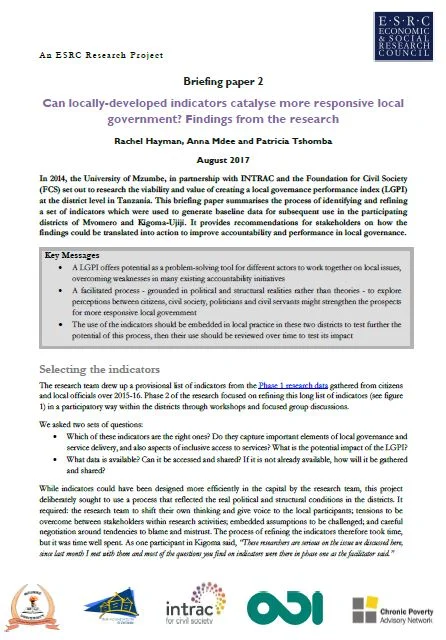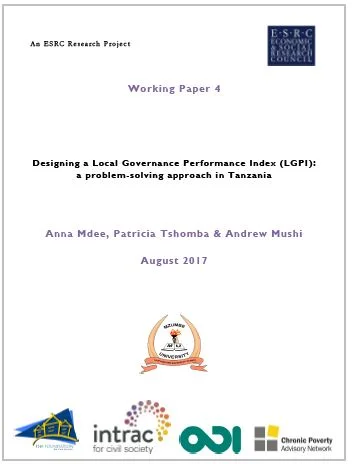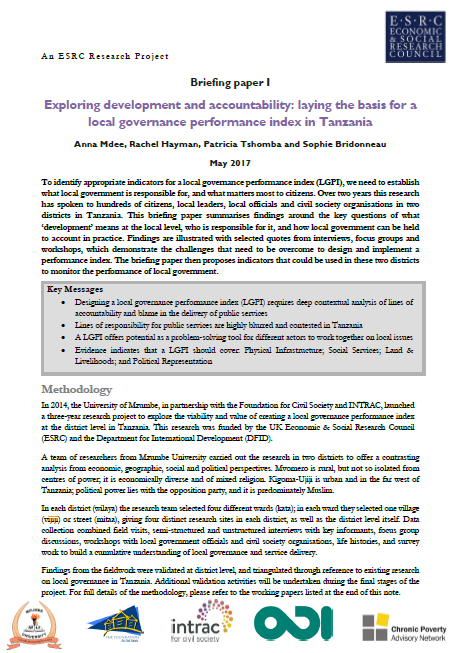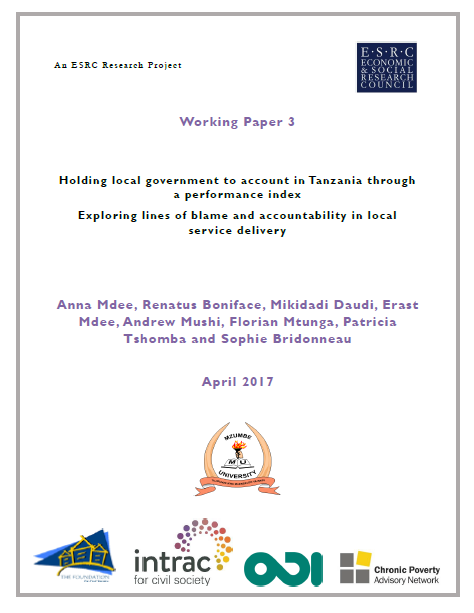If you give people a voice, will they be able to hold leaders to account and put pressure on them to take decisions that will improve public services and reduce poverty? This research starts with this question and is based on the idea that good governance can lead to efficient poverty reduction strategies. In 2012 the former director of the Foundation for Civil Society (FCS) in Tanzania, John Ulanga, posed the question:
“Can a local governance performance index stimulate greater public engagement in holding local leaders and institutions to account for their performance in delivering services and reducing poverty?”
The overall objective of this three year research project (2014-7) is to know how (and whether) an index based on local research data and shared among citizens could put pressure on local politicians and civil servants to perform better in Tanzania. The project focuses on an in-depth study of selected villages in Mvomero and Kigoma-Ujiji districts.
Funded by the UK Economic & Social Research Council (ESRC) and the Department for
International Development (DFID), this research wants to know:
- How might such an index be used to encourage local governments to prioritise the needs of the poorest and most excluded
- Can such an index be used by citizens to demand accountability from local leaders and civil servants
This study shows that when thinking about local governance performance, we have to recognise the fundamental and messy inter-relationships and potential conflicts between the rules in theory (what government actors are formally responsible for), what actually happens (the formal and informal institutions which citizens benefit from) and what people think should happen (perceptions and expectations of performance and change).
This research project was divided into two phases. Download the Research Overview for an in-depth description of the project.
Phase 1: Dialogues with local citizens and officials - Complete
This first stage of the project is an ethnographic research tracking service delivery, change and governance from individual citizens up to the central government level. The aim was to map lines of accountability, responsibility and change across levels, and to explore potential indicators that might meaningfully indicate the performance of local governance, and more fundamentally to stimulate dialogue and negotiation to solve barriers to improving and extending service delivery.
Phase 2: from dialogues to the design of a governance index? – Complete
The aim of this second stage is to review and refine the set of indicators proposed in phase 1 in negotiation with citizens, local government and civil society , and to identify the data required to quantify or qualify the indicators. . Following this a first set of indicators will be collected in order to establish a baseline, and to test a methodology for calculating the index. Future refinement of the index and collection of data for future iterations will be taken over by partnerships of local government and civil society.
Outputs:
- Event: 'Shouting at the system won’t make it work!' - 22nd June 2017 at the Overseas Development Institute, London. Click here to watch the video.
- A blog by Duncan Green on the event and on the use of indexes to hold local officials to account
The project is developed by the University of Mzumbe, in partnership with Foundation for Civil Society (FCS) , INTRAC and CPAN.


